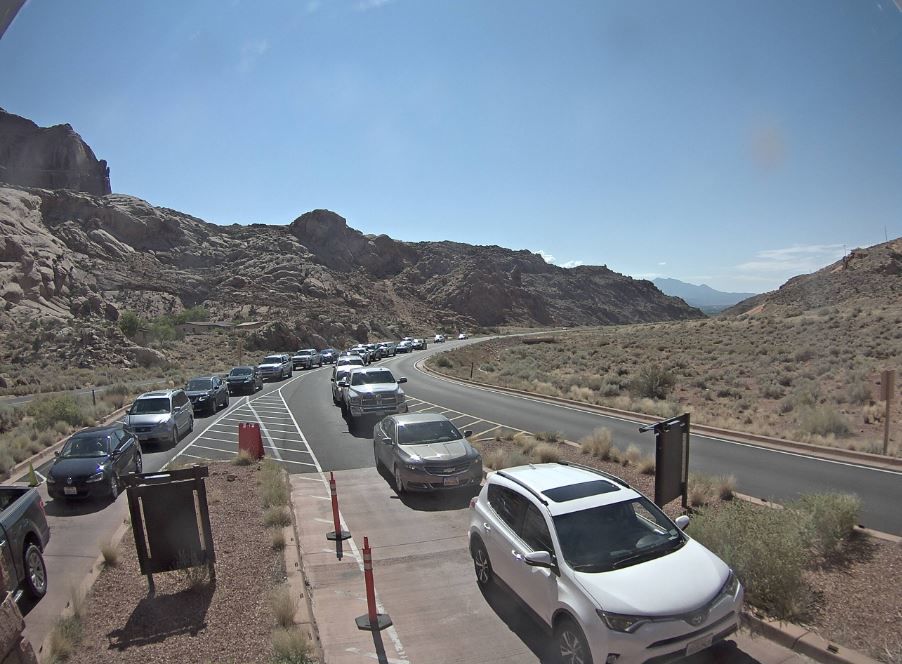Some information may be outdated.
Implementing an advanced reservation system to cut back on traffic congestion at Arches National Park could cause an economic spending loss of $11 to $22 million in its first year, according to a recent economic analysis.
A reservation-based entry system at Arches National Park during its busiest times of the year has caused many local residents and business owners to either welcome or reject the idea ever since National Park Service Southeast Utah Group Superintendent Kate Cannon first floated the concept in late 2014.
The draft Traffic Congestion Management Plan envisions a reservation system for vehicular entrance to the park during the high visitation season and peak-visitation hours. The traffic management plan is being developed to address traffic congestion issues that impact visitor access, visitor enjoyment and resource conditions, the National Park Service Southeast Utah Group said in a press release on Feb. 26.
Under the proposal, the agency would set a daily entrance cap of vehicles entering the park. Members of the public are now invited to an open house to continue discussions on the plan. The meeting will take place during the summer of 2019 at a date and time yet to be determined, the press release said.
Included in the press release is a link to the economic analysis being included in the draft traffic management plan. The economic analysis was completed by Chip Paterson, principal investigator of Industrial Economics, Inc. Paterson will be at the open house to outline the findings of the economic analysis in the draft plan. Paterson and park staff will also be available to answer questions.
In the summary of the analysis, it says the advanced reservation system could cause a 5- to 10-percent reduction in visitation, leading to a $11 to $22 million reduction in economic spending, which in turn could cause less employment, wages and tax receipts.
The economic analysis also says that upon hearing of the park’s plan to potentially implement the reservation system sometime in 2019, some international tour companies have not booked tours to Moab this year due to the uncertainty of the system. This could cause a 75-percent reduction in foreign bus tours in Moab this year, reducing international visitors to Moab by 30,000 in 2019, the analysis says. The park service said in its Feb. 26 press release that implementation of the proposed reservation system will not occur in 2019. A target implementation date has not been set.
During the public review period of the Traffic Congestion Management Plan Environmental Assessment, the National Park Service said it received a number of substantive comments, some questioning the impacts on the local economy. The National Park Service is continuing to collect additional data, perform data analyses, and refine the proposal.
And while locals have expressed both support and opposition for the traffic management plan, the economic analysis says that for this economic analysis, “we are not directly concerned about local residents.”
While local residents’ access to the park will be affected by a reservation system, the economic analysis says locals “are best positioned to adjust their use of the park and/or take advantage of the set aside day of/before reservation slots. More importantly, local residents will continue to make purchases of goods and services within the Moab area regardless of whether the system is implemented or not.”
Visit https://tinyurl.com/y2jdlbhe to see the final report of the economic analysis performed by Industrial Economics, Inc. (IEc) on the park planning website.
Appreciate the coverage? Help keep local news alive.
Chip in to support the Moab Sun News.





